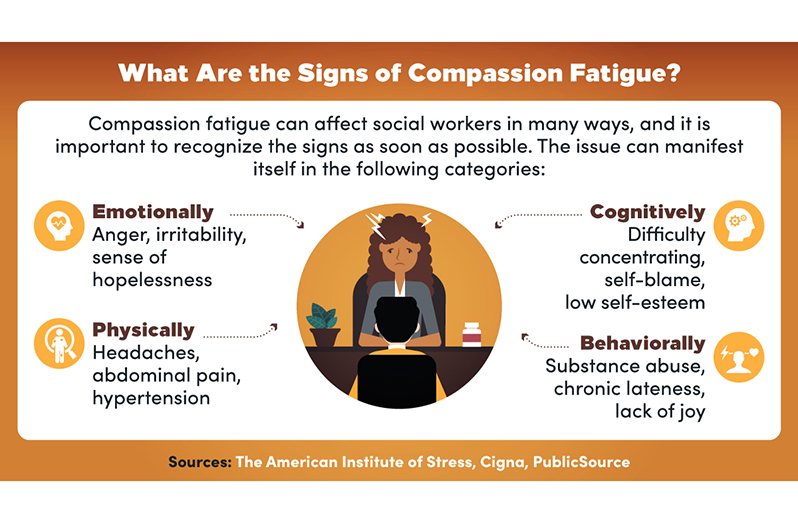TO see the words, compassionate and fatigue, in the same line might raise eyebrows, but it’s a term I’ve recently learned, and I’m happy that I did.
It explains the feelings of many people who have to show compassion daily, especially helping professionals working in traumatising conditions. Compassion fatigue is also known as vicarious or secondary trauma, secondary traumatic stress, depression or secondhand shock. It defines the psychological, physical and emotional costs or impact of helping others. Compassion fatigue knows no discrimination and can affect anyone anytime if helping professionals aren’t careful.
It is usually mistaken for burnout, but these concepts are entirely different and distinct. Burnout usually stems from an overload of work, but compassion fatigue stems from being overwhelmed by the excessive amount of trauma one is exposed to when trying to help others. Similar to burnout, compassion fatigue develops over time. When professionals neglect themselves in the process of helping others or when someone is experiencing compassion fatigue, they may feel tired, or exhausted, anxious, become emotionally distant, feelings of helplessness, self-isolation, and even physical symptoms like headaches. Compassion fatigue can affect your daily functioning and social relationships with others.

You shouldn’t allow your exposure to trauma to affect you in such a way. It can be very detrimental to your overall health. If you want to continue working while experiencing compassion fatigue, you may also be doing more harm than good to yourself and your clients. During the COVID-19 pandemic, many helping professionals have been on the forefront of assisting others, whether in the medical field, social services or even law enforcement. There were an overwhelming number of cases, many of which included death. As such, there was a huge problem with compassion fatigue; unfortunately, it’s still ongoing.
Similar to burnout, you should always learn to take measures to ensure you practise self-care regularly. Do not wait until you’re overwhelmed to practise it. You should learn to take necessary breaks and pace yourselves. I know it can be difficult, but we ought to always take care of ourselves first—the way they tell us to always put on our oxygen masks first when in aeroplanes. If, by chance, you notice the symptoms are severe and your personal measures to reduce the symptoms do not help, you should seek help from a mental health professional for further assistance.



.jpg)









